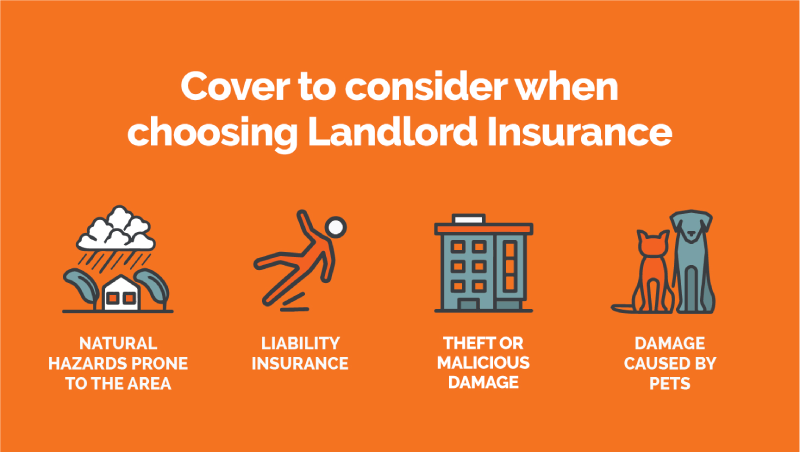Landlord Insurance in Victoria
Landlord Insurance in Victoria
*iSelect does not compare to all home and contents insurers in the market. The availability of policies may change from time to time. Not all policies made available from iSelect’s providers are compared by iSelect and due to commercial arrangements, area or availability, not all policies compared by iSelect will be available to all customers. See below for our range of home and contents insurers. Some policies are only available from iSelect’s call centre or online. Our advice on this website is of general nature and does not consider your situation or needs. Consider if any advice is appropriate for you before acting on it. Learn more.
Compare home and contents insurance the easy way*
Save time and effort by comparing a range of home and contents insurance policies with iSelect
What is Landlord Insurance?
Do I need Landlord Insurance if I have Building Insurance?
Does Landlord Insurance work differently in Victoria?
How much does Landlord Insurance in Victoria cost?
What doesn’t Landlord Insurance cover?
What is the typical policy term for Landlord Insurance in Victoria?
How much should I insure my rental property for?
How do I file a claim and how long will it usually take?
Where can I find and compare Landlord Insurance?
What is Landlord Insurance?
Landlord Insurance can help protect you from financial losses on your rental properties. Think of it as a safety net for unexpected events (from tenant defaults to natural disasters) and a way to take some risk out of your investment.
Landlord Insurance typically covers:
- Property damage from events like a fire, storm or intentional damage
- Loss of rental income if your property becomes uninhabitable
- Legal expenses that arise from disputes with tenants
- Liability protection if someone gets injured on your property
However, it’s also worth noting that different policies might work in different ways. They also may not all cover the same things. You’ll want to check out your insurer’s Product Disclosure Statement (PDS) for this very reason — it will outline how the policy works and what kinds of things it covers or doesn’t cover.
Keep in mind too that some insurers offer Home and Contents Insurance with Landlord Cover as an optional extra, while others will sell Landlord Insurance as its own standalone policy. Alternatively, there may already be some of the cover you’re after in your existing Home and Contents Policies. Who knows, you could end up pleasantly surprised.
Further, you may need to investigate what your owners corporation has in terms of insurance. Of course, this will only be the case if your rental is a unit or apartment in a body corporate scheme. At minimum, Victorian owners corporations have to get Building Insurance, along with Public Liability Insurance, for the common property.2Consumer Affairs Victoria – Insurance – owners corporations But yours may have gone above and beyond and may have more cover for landlords hidden away in the fine print. So, if you need reading glasses, now’s the time to grab them.
Do I need Landlord Insurance if I have Building Insurance?
While Landlord Insurance and Building Insurance both apply to your rental property, they tend to be providing cover for different things. For instance, Landlord Insurance tends to focus on the risks related to renting out your property, like damage from tenants or tenants defaulting on rent. Building Insurance can help reduce your financial losses of something happening to the property, like if it gets damaged in a storm or fire. Your insurance may then cover the costs of repairing or rebuilding the property.
Depending on policies and providers though, you might see some crossover between Landlord and Building Insurance. Or you may be able to add Landlord Insurance to your Building Insurance. Either way, it could be worthwhile to get both types of insurance to help cover you for a range of unexpected eventualities.
Does Landlord Insurance work differently in Victoria?
Different policies might cover different things, but they’ll work pretty much the same way whether you live in Brunswick or Ballarat.
That being said, Victoria has its own set of tenancy laws and these could make getting Landlord Insurance for your rental property a smart move.
- Pet requests: You can’t refuse a tenant’s request to keep a pet at the property without good reason. Additionally, you can’t bump up the bond just because a pet will be living there. While renters do have to keep the place clean and do their best to avoid damage from occurring, pets may choose to ignore this. The tenant might have to pay to fix things up,3Consumer Affairs Victoria – Pets in rental properties but there could always be the possibility that it’ll end up on your plate. With appropriate Landlord Insurance though, you could take some of the bite out of that bill.
- Family violence: If your tenant needs to break their lease due to family violence, they don’t actually have to pay a fee if they have a VCAT order.4Consumer Affairs Victoria – Changing the rental agreement because of family violence This can, unfortunately, mean that you are suddenly without your rental income until you find a new tenant. However, if you have Landlord Insurance, you may be able to make a claim and reduce the loss on your part.
How much does Landlord Insurance in Victoria cost?
Home and Contents Policies — including Landlord Insurance — can be more expensive in Victoria than in states like Tasmania and South Australia.5The Guardian – Fears many Australians will abandon home insurance as premiums jump 50% in high-risk areas This could be attributed to a variety of reasons but one of the bigger ones is that Victoria has the unenviable recognition of being one of Australia’s bushfire-prone states.6Budget Direct – Bushfire insurance, 7Safer Together – Understanding risk Of course, what you’ll be paying will also depend on your property, the cover you choose and your excess.
What doesn’t Landlord Insurance cover?
If you want to know what your policy doesn’t cover, you’ll need to get up close and friendly with your PDS. However, to give you a hand as you compare Landlord Insurance, you won’t find things like the below generally covered:8Budget Direct – Your Home and Contents Insurance Policy, p55
- Homes left unoccupied for too long: Your policy might not cover you if your property is empty for an extended period of time when damage occurred. The exact limit can differ from insurer to insurer, so be sure to check your PDS.9Forbes Advisor – Landlord Insurance In Australia: What You Need to Know
- Repeated theft or damage by tenant: If your tenant or their visitor damages the property or steals from it more than once on the same lease agreement, your insurer may not cover it. You might also want to look into why it keeps happening.
- Loss or damage due to your poor maintenance: In Victoria, part of your duties as a landlord is to keep the property in good nick for someone to live there, whether it’s a new build or it’s as old as Old Melbourne Gaol. Additionally, if something gets damaged or completely wrecked in your rental property and it turns out that it hasn’t been looked after by you properly, your insurance is unlikely to cover it.
What is the typical policy term for Landlord Insurance in Victoria?
Your policy term may be different from the next person’s, however, you tend to see 12 months as a general length. After that point, you may then need to manually renew your Landlord Insurance, or your insurer may notify you that they will renew it soon, along with recalculating your premium if required.
How much should I insure my rental property for?
Determining how much cover you need is like trying to find the right pair of shoes — it needs to fit just right or things can get uncomfortable. If the unexpected happens and your cover isn’t enough, you could be in some serious financial trouble. Too much cover though and you could be paying for more than you will ever need.
Ultimately, it can help to think about not just covering the value of the property but also the rental income you receive for it. So you may want to look at cover that includes protection for repairing and replacing the property, along with the rent you’ll miss out on while no one can live there. FYI: the median rent in Metro Melbourne is $500 a week, while regional Victoria is $420 a week.10Homes Victoria – Rental Report June quarter 2023, p6
Further, if you’re concerned about legal fees, like a tenant or visitor injuring themselves on the premises, you might want to throw in some decent Public Liability Insurance too.

How do I file a claim and how long will it usually take?
While every insurer is different, you can likely expect your claims process to go a little like this:
- Document everything: You’ll want to gather as much evidence as possible. Take pictures of the damage and get a police report if you’re dealing with vandalism or malicious damage. This kind of stuff will be your best friend when you’re talking to the insurance company.
- Contact your insurer: The sooner the better. Most insurers have a hotline or online portal where you can start the claims process ASAP.
- Assessment: The insurer will start reviewing your claim. Depending on how complicated it is, they might ask for more detailed information or ask to send someone to your property to assess the damage first hand.
- Wait for the decision: If your claim is simple, it could be settled in a couple of weeks. But for more complicated claims or if there are a lot of claims at once, like after a flood, it can take a little longer.
- Settlement: If your claim is approved, the insurer will arrange for the benefits to be paid or the repairs to begin
If things don’t go quite the way you wanted (within reason), you can let your insurer know. This can be further escalated to the Australian Financial Complaints Authority (AFCA).11Insurance Council of Australia – Complaints
Where can I find and compare Landlord Insurance?
Finding the right kind of Landlord Insurance — one that balances price and coverage — can be like searching for a needle in a haystack. However, iSelect can make it a little easier. At a glance, you can compare different policies from a range of providers on our site.* Try it out today and take a look at what’s out there or give us a call on 13 19 20 and we’ll take you through some options.

.svg)






